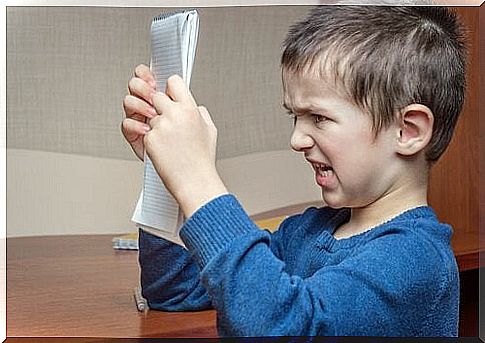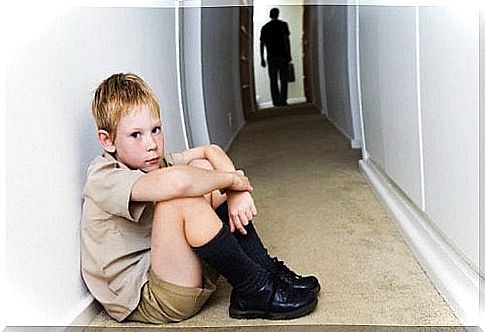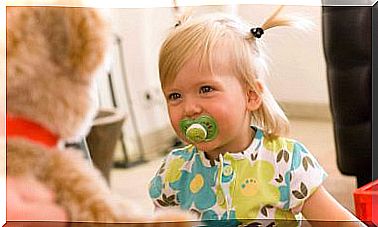How To Prevent Anxiety In Children

Both adults and children can suffer from anxiety. In this article, we will give you tips on how to prevent anxiety in children with the help of some very simple tips.
Anxiety has many different consequences. It can affect children’s physical and mental well-being. It can also affect their relationships with the environment.
Anxiety is a defense mechanism when faced with a threat or danger. As an adaptable ability to react to the environment, anxiety is both good and normal.
However, anxiety can become a problem if it occurs frequently and for no reason. This can happen when children feel scared, or worried about things they should not worry about.
There are several different factors that can cause a person to suffer from anxiety, such as biological heritage, personality and the environment they are in.
How does anxiety manifest in children?
Children suffering from anxiety often show the following symptoms:
- Intense fear
- Concern
- Irritation
- Restlessness
- Nervousness
Anxiety also causes physical symptoms. Of course, children are no exception. A child with anxiety may show any of the following symptoms:
- Faint
- The heart beats fast
- Fever
- Cold sweaty hands
- Headache or stomach pain
- Insomnia or cramps
What situations can cause anxiety in children?
If you want to know how to prevent anxiety in children, it is important to find out why it occurs. As I said, there are three factors that make a person susceptible to anxiety.
You can not do anything about the biological factors, because they are deeply embedded in the baby’s brain and genes. But when it comes to personality, you can help your child with some problem-solving methods. You can also help your child change their lifestyle to live a better life.
The third factor, the environment, is where you can make the biggest difference. So study carefully how the child behaves in social contexts (such as school, sports groups and with the family) and what can cause anxiety there.
How to prevent anxiety in children?
These recommendations can be effective if you are trying to figure out how to prevent anxiety in your child. Remember that it is very important to find out the cause in order to know which treatment is right.
- Talk to the child. Find out what worries him and why, and how he feels about it. You must also be available so that your child can express their feelings to you. But do not force your child to tell you things he does not want.
- Be a good role model. Always behave reasonably and think through your actions without panicking. In this way, your child will slowly but surely follow your behavior and thus learn that everything has a solution.
- Teach your child to deal with their problems. For example, you can use a snowball as a metaphor; the longer you roll it, the bigger it gets. In this way, the child learns that problems arise, but you can overcome them and become a better person.

- Do not reduce the child’s problems. If you see everything through an adult’s eyes, the problems will seem small. Thus, you will not understand the reasons for your child’s anxiety. Things that seem trivial to you can actually be very challenging for your child.
- Be understanding. If a child feels lonely when faced with an uncomfortable situation, the anxiety will increase. If, on the other hand, you show love and support, the child will feel more secure and able to face the problem.
- Congratulations to the children for their efforts. A lot of anxiety arises because you think you can not cope with a problem or a challenge. But if children are made aware of their capacity, their way of thinking changes. They will then start to see things in a more positive way.
- Let the kids have fun. Constantly indulging in every detail can be devastating to children’s personalities. If, on the other hand, you allow them to have fun and relax every day, there will be less room for anxious thoughts in their heads.
Conclusions
As a final tip, it is important to be involved in your children’s lives, but without pressuring them or invading their privacy. It is good to know what happens to them in daily life.
This way, you can detect a potential conflict in advance and help your children deal with it. So there is no magic way to prevent anxiety in children, but you can work on their ability to solve their own problems.









